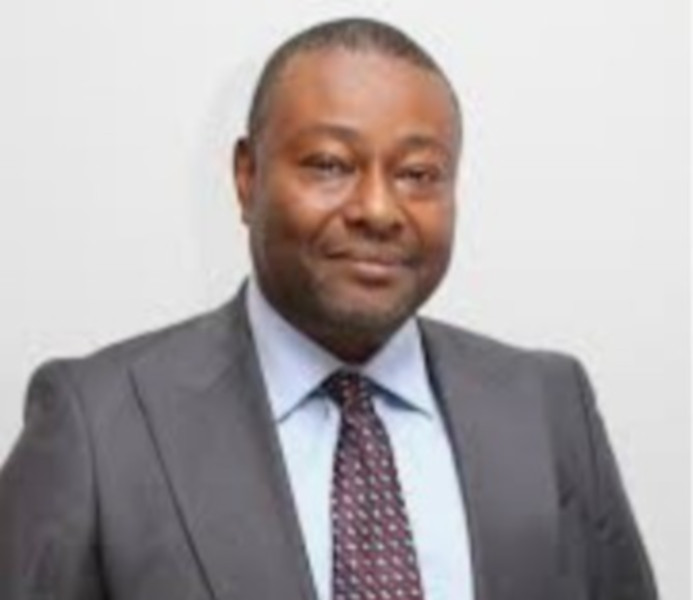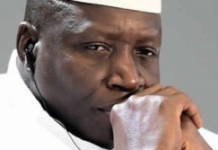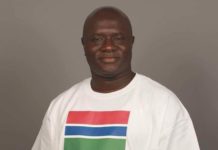By Yankuba Jallow
The National Human Rights Commission (NHRC) has on the 9th June 2021 written to the Inspector General of Police to take disciplinary proceedings against two of his men who tortured one Kebba Secka on the 12th June 2020 at Kerr Mot Hali.
The three commissioners who presided over the case were Commissioner Emmanuel Daniel Joof, the Chairperson of the Commission, Commissioner Jainaba Johm, the Vice Chairperson of the Commission and Commissioner Njundu Drammeh.
Secka, together with his witnesses and the alleged assailants, testified before this panel at the National Human Rights Commission.
The human rights commission through its legal and investigation department received communication from one Kebba Secka on the 30th June 2020 in which he alleged that he was subjected to beatings by Corporal Yusupha Ceesay at the Police Intervention Unit (PIU) unit at Kerr Mot Ali under the instruction of Sergeant Lamin Darboe.
In support of his complaint, Kebba Secka submitted a copy of the judgment from the Kaur Magistrate’s Court in which he was acquitted and discharged of all charges the police levelled against him. He also tendered two medical papers one from the Njau Health Center where it was indicated that he had moist in his eyes and the other from the Farafenni Hospital where it was determined that he had contrition in his right ribs.
Secka, a journalist by profession, is a native of Kerr Mot Hali and a follower of the teachings of Sering Ndigal. In 2009, they were forced into exile by the former regime that allegedly used the police to chase them out of the country. They are still refugees in Senegal even after having a high court judgment dated 12th October 2017 in their favour.
Narrating his ordeal, Kebba Secka said he was on his way back to The Gambia after having withdrawn all his savings while in the village and needed to come to the Greater Banjul Area because the Senegalese Government gave out Covid-19 relief package to its citizens but it was not extended to them as they are not considered Senegalese. As a result, life was difficult in the village and he decided to return to the Kombos.
Secka further stated that because the borders were closed, travellers had to pass through Kerr Mot Hali Gambia, adding he could have used other porous routes to get into the Gambia, but he chose to pass through the renowned route. At the PIU base, he said he found personnel including the two who later became his assailants – Sergeant Lamin B. Darboe and Corporal Yusupha Ceesay.
He said he was approached by Sergeant Darboe who asked him for his identity card. Secka said he produced his national identity card, photocopy of his passport and his press card issued to him by Foroyaa Newspaper. He explained that he was wearing a lanyard around his neck which had a photo of his marabout – Momodou Habibou Laye Secka commonly known as Sering Ndigal.
Secka testified that Darboe, after looking at the photo of his marabout, used foul words against his religious leader and followership. He quoted Darboe saying “you are part of the fucking Ndigal people. You people are bad and that is why the Gambia Government removed you. You will never be allowed to come back to this country.”
Secka told the Commission that he asked Darboe not to insult him as he tried to enlighten him on their situation that resulted in their stay in Senegal, but Sergeant Darboe wouldn’t listen and he continued to insult him.
The Commission held that Secka did not provide any other evidence to support his testimony. However, when the allegation was put to Sergeant Darboe he vehemently denied it as false. Corporal Ceesay said he did not hear Sergeant Darboe insult Secka. The Commission noted that the lack of evidence with respect to the insults does not in any way affect the allegations of torture.
Secka continued with his testimony before the Commission saying he never attempted to force his way into the Gambia. The father of one said the border is very open and he could cross it without notice through any other route. Sergeant Darboe and Corporal Ceesay both confirmed that the area has porous borders that stretches beyond their guard post. However, the allegation before the Commission was that Secka tried to forcibly cross the border into the Gambia through the PIU post, in spite of the fact that there was a pandemic resulting in the closure of the borders. Secka denied the allegation that he attempted to forcefully bypass the four men on guard at the time.
Secka said he tried to enlighten Sergeant Darboe more about his community’s situation and how even the TRRC had conducted hearings on the issue of his community. He said Sergeant Darboe called upon Corporal Ceesay to “teach him a lesson”. He said Ceesay put him in cuffs and started slapping and kicking him. Secka testified that he was made to sit on the ground. Darboe and Ceesay both denied the allegation and suggested that they only arrested him when he tried to force his way into the Gambia.
In his testimony under oath, Corporal Yusupha Ceesay stated that Secka arrived at the guard post in Kerr Mot Ali where he was stopped by Sergeant Lamin Darboe who asked him where he was going. Ceesay said Secka replied that he was going to Kaur but was arrested and handcuffed when he allegedly insisted that he would cross the guard post and attempted to force his way through. Ceesay said Secka was accompanied to Njau Police Station where he was charged with the offence of obstruction.
Sergeant Lamin Darboe who is jointly accused by Secka also narrated a similar chain of events as contained in Yusupha Ceesay’s testimony. However, contrary to Yusupha Ceesay’s testimony that he alone gripped and handcuffed Secka, Darboe admitted to participating in gripping and handcuffing Secka although he denied ever subjecting him to any beatings.
One Momodou Ousman Secka, an eyewitness, testified that he was at his shop when some boys informed him that a follower of Serign Ndigal was held at the PIU guard post and was subjected to beatings by PIU officers. He testified that as he approached the PIU guard post, he could see Corporal Ceesay and Sergeant Darboe beating, slapping and kicking Secka. He added that he pleaded with the policemen to release Secka but they declined his request and asked him to leave.
The Commission held that the witness’s testimony corroborated Secka’s allegation that he was subjected to beatings and slaps by Sergeant Darboe and Corporal Ceesay.
Another witness CIP Lamin Ceesay said he was at Njau Police Station when he received a call from the CRR Police Commissioner that he should go to the guard post in Kerr Mot Ali where a journalist had been arrested. He was asked to go and find out the circumstances of his arrest. Upon arrival, he said he observed that Secka was calm, but his eyes were red, adding Secka informed him that he was beaten by Corporal Ceesay under the instruction of Sergeant Darboe. He added that Darboe and Ceesay said Secka attempted to force his way through the post and this was when he escorted all of them to Njaur Police Station.
One Muhammed Leigh, in his evidence said he was the one who escorted Secka to Njau Health Centre as he was complaining of feeling pain in his chest and ribs from the beatings he allegedly received at the border post in the hands of Darboe and Ceesay.
The Commission found the testimony of Secka convincing.
“The complainant’s [Kebbe Secka’s] right to freedom from torture, inhumane and degrading treatment guaranteed in section 21 of the 1997 Constitution was violated by the Respondents [Sergeant Darboe and Corporal Ceesay],” the Commission held.
The Commission also held that the medical papers tendered also addressed the fact that Secka had been assaulted resulting in pain.
The Commission held that section 17 of the Constitution provides that the fundamental rights and freedoms of individuals should be observed and respected by all state organs including the Executive and its organs. The Commission stressed that where complaints of human rights are brought to a law enforcement officer, the best cause of action should be to have the matter thoroughly investigated in accordance with the law.
In this case, CIP Lamin Ceesay was informed by Secka that he was beaten by the two but he chose to have him arrested and charged him with obstruction without investigating the allegation made by Secka that he was beaten. The Commission held that CIP Lamin Ceesay neglected his duty of respecting the rights of Secka to be heard and attended to.
The Commission also recommended a three-day training of at least 50 PIU personnel at the border posts on human rights and law enforcement.
The Commission asked the police chief to report back to them within 30 days as to the steps the police took to discipline Sergeant Lamin B. Darboe and Corporal Yusupha Ceesay.





















